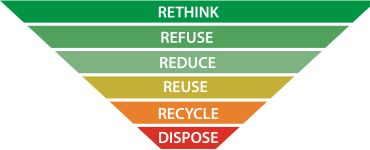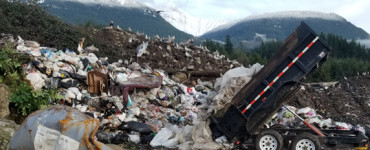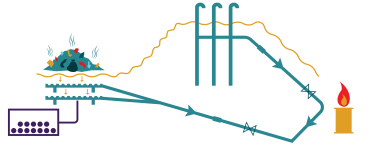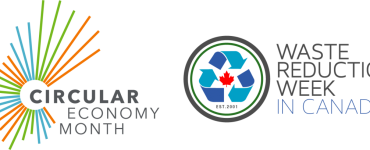Waste
Closing the loop on waste is an important part of our climate action efforts. When you throw organic waste like vegetable scraps in a landfill, the decomposition process releases methane gas into the atmosphere. Methane is a very potent greenhouse gas that is 26 times stronger than carbon dioxide. In fact, landfill waste accounted for 20% of our community greenhouse gas emissions in 2020. Proper waste management can have a significant impact on reducing our emissions.
The goal is to divert as much waste from the landfill as possible.
Achieving zero waste
The District of Squamish Zero Waste Strategy includes guidelines for how homes and businesses can divert waste from the landfill by properly disposing of organic materials such as food, yard and garden cuttings, and construction materials that cannot be recycled.
Squamish is also using innovative technology to manage our existing landfill emissions. The District of Squamish installed a landfill gas collection system in December 2021 in order to capture and burn methane from the landfill. We are also exploring ways to use this renewable natural gas in the future.
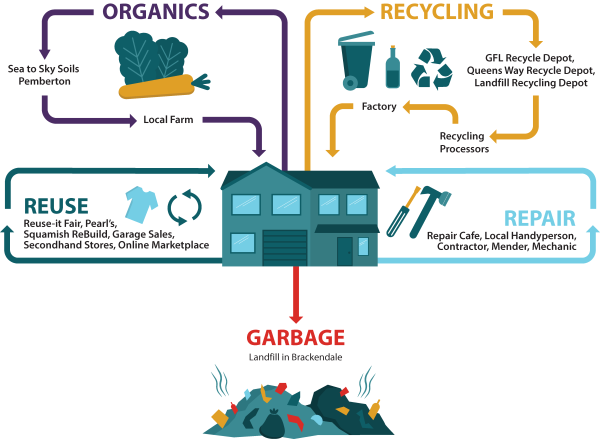
Offsetting Municipal Carbon Emissions
The District of Squamish has joined numerous BC municipalities, including Metro Vancouver, as a participant in the Local Carbon Registry (LCR). The LCR allows organizations to showcase actions that reduce local carbon emissions, to track progress to reduce emissions, and to plan pathways to be carbon neutral.
Municipal projects like the District’s Residential Organic Waste Diversion and Composting Program and Electric Vehicle charging stations are examples of projects in the LCR.
Squamish is carbon neutral as a municipality, which means that it offsets its corporate emissions. It is important to first do everything you can to reduce emissions before looking to purchase offsets.

